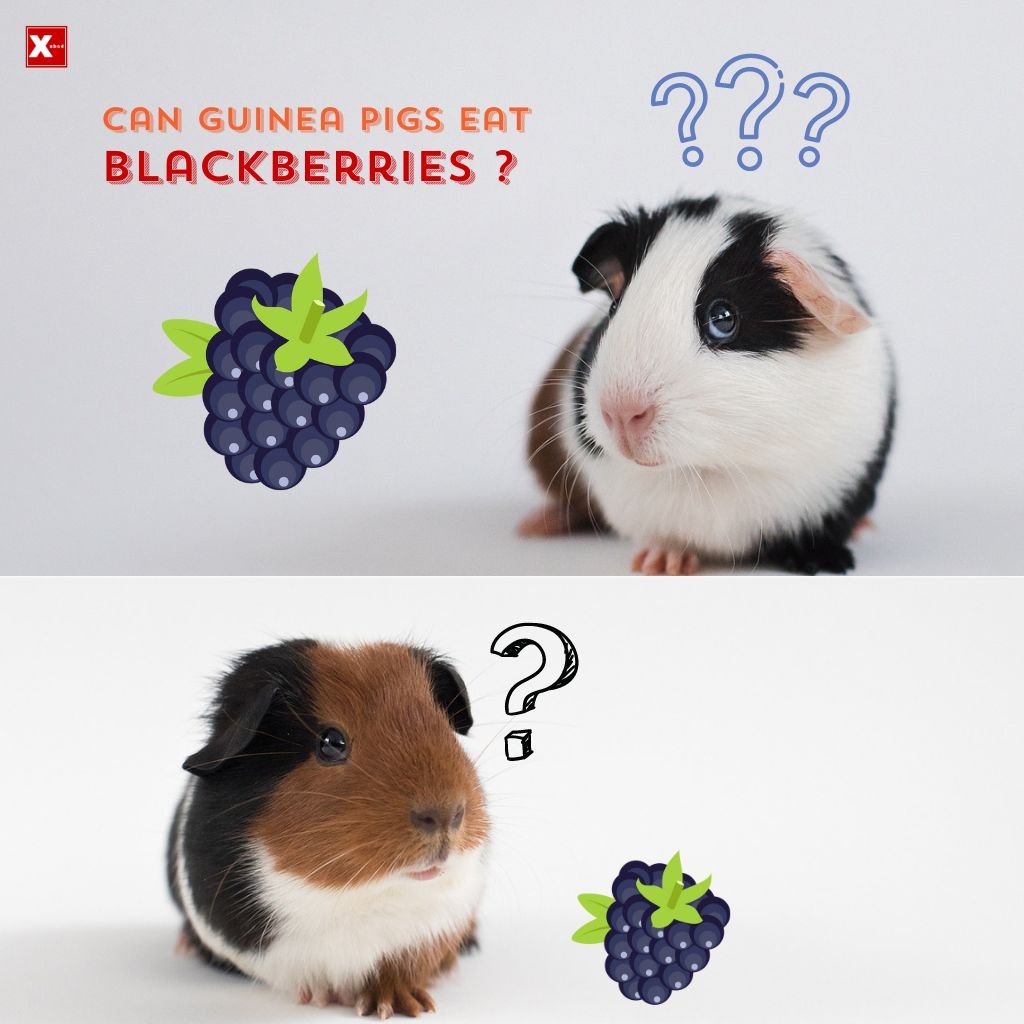Curious about whether blackberries are safe for your furry friend? Yes, blackberries can provide your guinea pig with many nutritional benefits and contribute to your guinea pig's health. Look no further! In this article, we will discuss everything you need to know about feeding blackberries to guinea pigs. From their nutritional value to potential risks, we have got you covered.
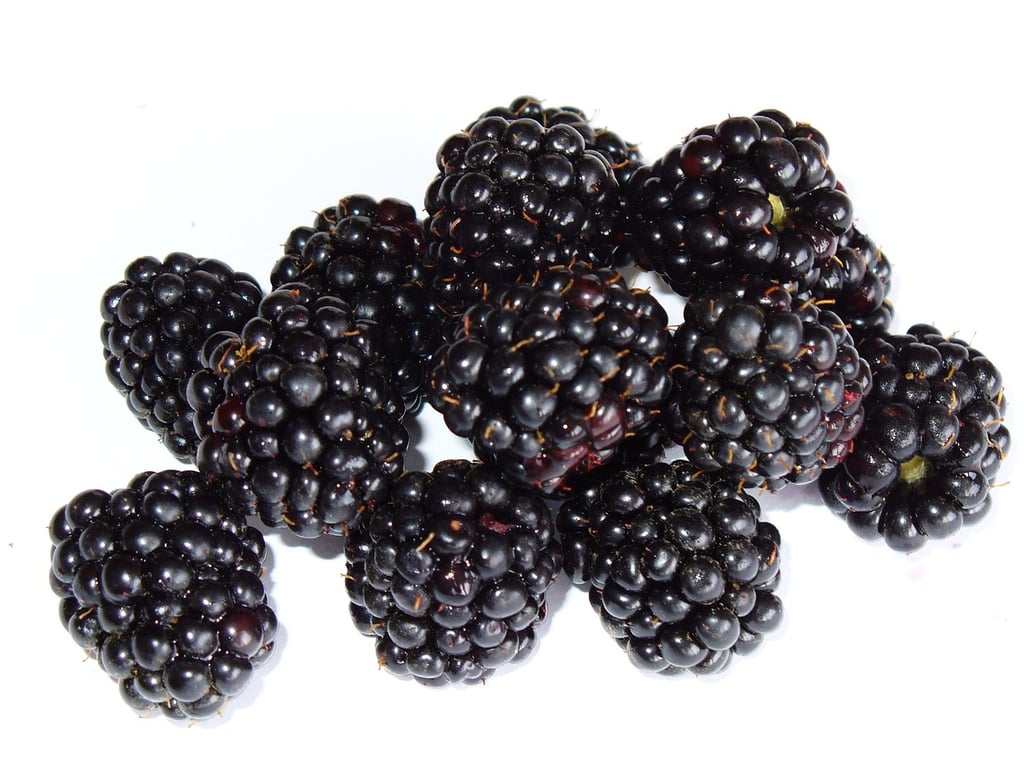
Nutritional Benefits of Blackberries for Guinea Pigs
Blackberries are not only delicious but also offer several nutritional benefits for guinea pigs. Adding this tasty fruit to their diet can provide a range of essential vitamins and minerals that contribute to their overall well-being. Here are some of the key nutritional benefits of blackberries for guinea pigs:
- Vitamin C: Blackberries are known for their high vitamin C content. Just like humans, guinea pigs cannot produce this vitamin on their own and need a dietary source. Vitamin C is crucial for the healthy development and maintenance of various body functions in guinea pigs.
- Fiber: A diet rich in fiber is essential for guinea pigs to maintain a healthy digestion system. Blackberries are a good source of dietary fiber, which helps regulate their digestive process and prevent issues such as constipation.
- Antioxidants: Blackberries are packed with antioxidants that protect the body against harmful free radicals. These antioxidants can help improve guinea pigs' immune system and reduce the risk of chronic diseases.
- Minerals: Blackberries contain various minerals, including potassium, manganese, and magnesium, which are vital for guinea pigs' overall health. These minerals support proper functioning of the muscles, nerves, and other essential bodily processes.
While blackberries offer numerous nutritional benefits, it is important to remember that they should be served in moderation. Too much of any food can upset the delicate balance of a guinea pig's diet. Always consult with a veterinarian before introducing new foods to your pet's diet to ensure they meet their specific nutritional needs.

Feeding Blackberries: How Much is Too Much?
When it comes to feeding blackberries to your guinea pig, it's important to understand the appropriate portion sizes. While blackberries are a nutritious treat, it's crucial not to overdo it. Like with any food, moderation is key to ensure your guinea pig's health and well-being.
So, how much is too much when it comes to feeding blackberries to your guinea pig? Generally, it is recommended to offer blackberries as an occasional treat rather than a staple in their diet. A small portion of blackberries can make a tasty and nutritious snack for your furry friend, but it's important not to go overboard.
- Start by introducing blackberries slowly, offering a small piece or two to gauge your guinea pig's reaction.
- Observe how your guinea pig responds to the treat. If they enjoy it and show no signs of digestive issues, you can gradually increase the amount over time.
- Aim to provide blackberries once or twice a week, and ensure it doesn't exceed 10% of your guinea pig's overall diet.
It's worth noting that guinea pigs have sensitive digestive systems, and feeding them excessive amounts of blackberries or any other food can lead to health problems. Too many blackberries can cause bloating, diarrhea, or even lead to obesity, which can have detrimental effects on your guinea pig's overall health.
Remember, alongside a balanced diet of hay, fresh vegetables, and pellets, blackberries can be a delightful and nutritious addition to your guinea pig's menu. However, it's crucial to maintain variety in their diet and not rely solely on blackberries or any other treat.
If you have any concerns about your guinea pig's diet or are unsure about the appropriate portion sizes, it's always best to consult with a veterinarian who specializes in small animal care. They can provide personalized advice based on your guinea pig's specific needs and help you create a well-rounded and healthy diet plan.
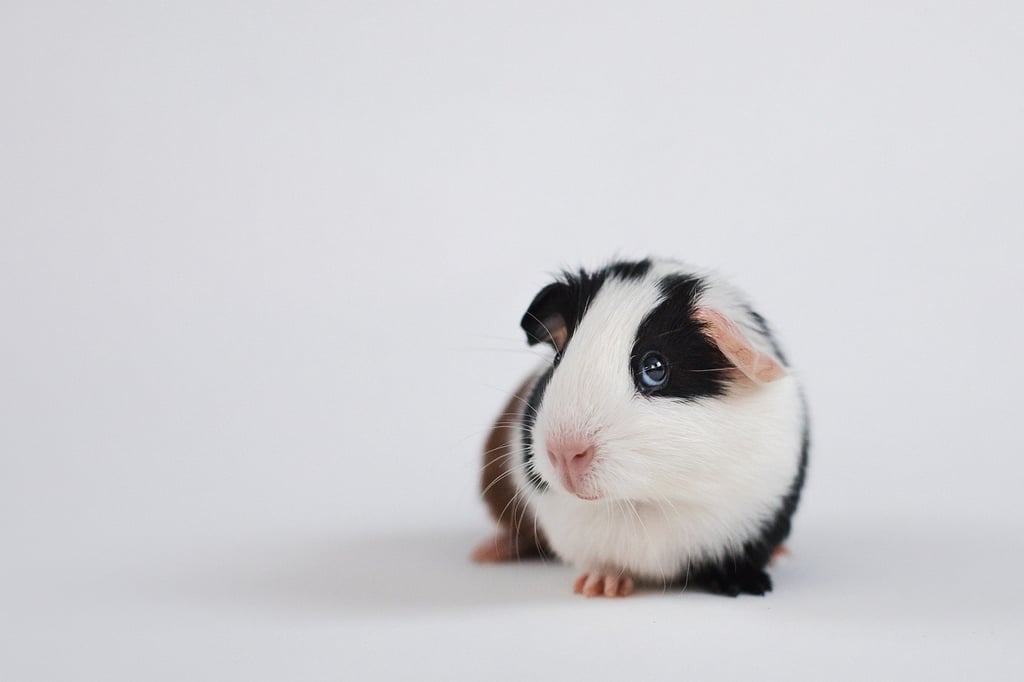
Potential Risks of Feeding Blackberries to Guinea Pigs
While blackberries can offer several health benefits to guinea pigs, it's essential to be aware of the potential risks associated with their consumption. Here are some points to consider:
- 1. High Sugar Content: Blackberries are naturally sweet fruits, which means they contain a significant amount of sugar. While a small quantity of blackberries can be consumed by guinea pigs as a treat, excessive sugar intake can lead to obesity, dental issues, and digestive problems. It is crucial to offer blackberries in moderation and consider them as an occasional treat rather than a regular part of your guinea pig's diet.
- 2. Allergic Reactions: Just like humans, guinea pigs can develop allergies to certain foods, and blackberries are no exception. Some guinea pigs may show signs of allergic reactions such as itching, skin rashes, and gastrointestinal disturbances after consuming blackberries. If you notice any unusual symptoms or behavioral changes in your guinea pig after feeding them blackberries, it is best to discontinue offering them and consult a veterinarian for further guidance.
- 3. Pesticide Residue: It's important to consider the source and quality of blackberries before feeding them to your guinea pig. Conventionally grown blackberries may contain pesticide residue, which can be harmful to your furry friend. Whenever possible, opt for organic blackberries or thoroughly wash and remove any potential residue to minimize the risk of pesticide exposure to your guinea pig.
- 4. Choking Hazard: Guinea pigs have smaller digestive systems and delicate throats, making them more prone to choking. Blackberries, especially if not properly prepared, can pose a choking hazard due to their seeds or larger pieces. To minimize this risk, make sure to cut the blackberries into small, bite-sized pieces before offering them to your guinea pig.
By being aware of these potential risks and taking necessary precautions, you can ensure the well-being and safety of your guinea pig while incorporating blackberries into their diet.
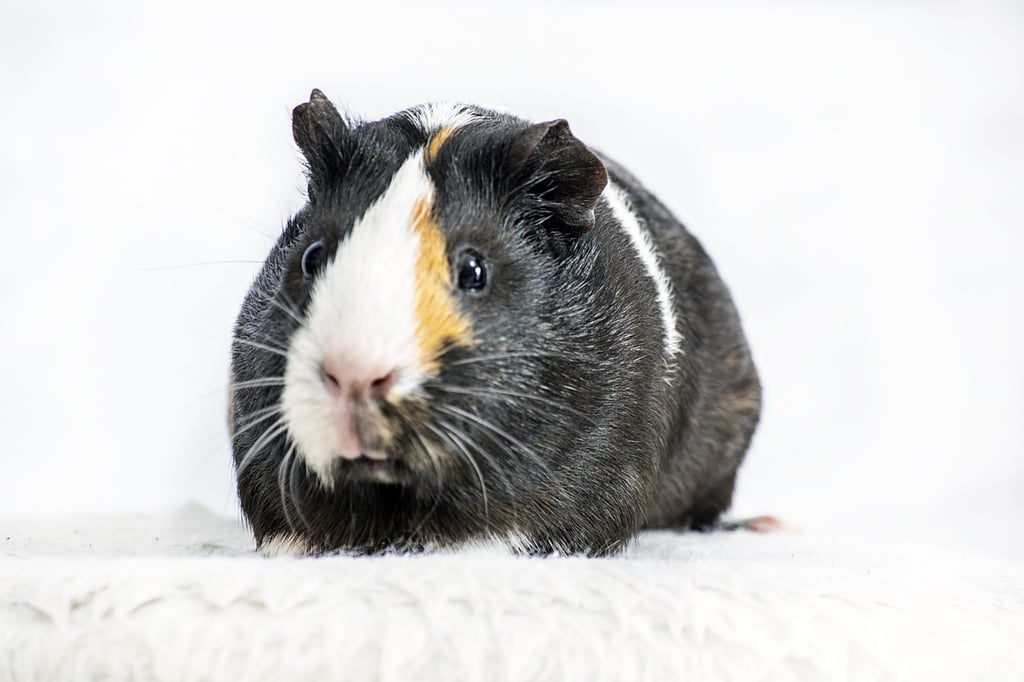
Introducing Blackberries to Your Guinea Pig's Diet
When introducing blackberries to your guinea pig's diet, it is important to do so gradually. Just like any new food, guinea pigs may need time to adjust to the taste and texture of blackberries. Here are some steps you can follow to ensure a smooth introduction:
- Start by offering a small piece of blackberry as a treat. Monitor your guinea pig's reaction and observe any signs of digestive upset or allergies.
- If your guinea pig shows no adverse reactions, you can gradually increase the amount of blackberry offered. However, it is crucial not to overfeed them. Blackberries should be given as an occasional treat, not as a staple part of their diet.
- Offer a variety of other fruits and vegetables alongside blackberries. This will help ensure a well-balanced diet for your guinea pig. Remember, variety is key!
- Observe your guinea pig's dietary preferences. Some guinea pigs may enjoy blackberries more than others. If your pet shows a lack of interest or dislike towards blackberries, it is best to respect their preferences and not force them to eat it.
It's important to note that while blackberries are generally safe for guinea pigs, every guinea pig is unique. Some guinea pigs may have specific dietary restrictions or health issues that need to be taken into consideration. If you have any concerns or questions about introducing blackberries to your guinea pig's diet, it is best to consult with a veterinarian.
Remember, moderation is key when it comes to feeding your guinea pig any treats, including blackberries. Too much fruit intake can lead to digestive problems and weight gain. Always prioritize a balanced diet that consists mostly of hay, fresh vegetables, and a limited amount of fruits as occasional treats.
By following these guidelines and taking your guinea pig's individual needs into account, you can safely introduce blackberries into their diet and offer them a tasty and nutritious treat that they will enjoy!

Alternatives to Blackberries for Guinea Pig Treats
While blackberries can be a great treat for guinea pigs, it's always good to have some alternatives on hand. Variety is key when it comes to keeping your furry friend happy and healthy. Here are some alternative treats that you can offer to your guinea pig:
- 1. Strawberries: These juicy, red fruits are not only delicious but also packed with vitamin C, which is vital for guinea pigs. Just like with blackberries, make sure to offer strawberries in moderation to prevent any tummy troubles.
- 2. Blueberries: Similar to blackberries, blueberries are rich in antioxidants and can provide a tasty and nutritious treat for your guinea pig. These tiny fruits make for a great snack and can be served whole or cut into smaller pieces.
- 3. Apples: Guinea pigs love the crisp texture and sweet taste of apples. However, it's important to remove the seeds and core before offering them to your pet. Apples are a great source of fiber and can be a nice occasional treat.
- 4. Carrots: Crunchy and packed with vitamin A, carrots make for a fantastic treat for guinea pigs. You can offer them as a whole carrot or cut them into small, bite-sized pieces. Remember, carrots should be fed in moderation due to their high sugar content.
It's important to note that while these alternatives can be a healthy addition to your guinea pig's diet, they should still be offered as treats and not as a replacement for their regular diet of hay, pellets, and fresh vegetables.
When introducing new treats to your guinea pig, always do so gradually. Start by offering a small piece and monitor their reaction. If there are no adverse effects or digestive issues, you can continue to incorporate these treats into their diet from time to time.
Remember, each guinea pig is unique, and their preferences may vary. So, it's always a good idea to observe their reactions and consult with a veterinarian if you have any concerns about introducing new treats into their diet.
Monitoring Your Guinea Pig's Health after Feeding Blackberries
After introducing blackberries to your guinea pig's diet, it is crucial to closely monitor their health to ensure they are tolerating this new treat well. While blackberries are generally safe for guinea pigs, some individuals may have sensitivities or allergies to certain foods. Here are some key points to keep in mind when monitoring your guinea pig's health after feeding blackberries:
- Observe Digestive Health: Pay attention to your guinea pig's stool consistency and frequency. Blackberries are high in fiber, which can help regulate digestion. However, if you notice any sudden changes in their bowel movements, such as diarrhea or constipation, it may indicate an issue. Make sure to provide plenty of fresh water to support digestion.
- Watch for Allergic Reactions: While uncommon, some guinea pigs may be allergic to blackberries. Keep an eye out for any signs of allergies, such as excessive scratching, skin irritation, or swelling. If you notice these symptoms, discontinue feeding blackberries and consult a veterinarian for further guidance.
- Monitor Urination: Pay attention to your guinea pig's urine output and color. Blackberries have a high water content, which can contribute to increased urine production. If you notice a decrease in urination or any changes in urine color (e.g., blood in urine), it could indicate a potential problem. Contact your veterinarian if you have any concerns.
- Check for Dental Issues: Blackberries contain small seeds that can get stuck in your guinea pig's teeth. Regularly inspect their teeth and gums to ensure there are no signs of dental problems, such as inflammation or difficulty eating. Consider providing hay or chew toys to help keep their teeth healthy.
- Monitor Weight: Keep an eye on your guinea pig's weight to ensure they are maintaining a healthy body condition. While blackberries are nutritious, they also contain natural sugars and can contribute to weight gain if overfed. Consult a veterinarian if you notice any significant weight fluctuations in your guinea pig.
By closely observing your guinea pig's digestive health, watching out for allergic reactions, monitoring their urination, checking for dental issues, and keeping track of their weight, you can ensure that blackberries are being well-tolerated by your furry friend. Remember, every guinea pig is unique, and it's essential to be attentive to any changes in their health. If you have any concerns or questions, never hesitate to seek professional advice from a veterinarian.
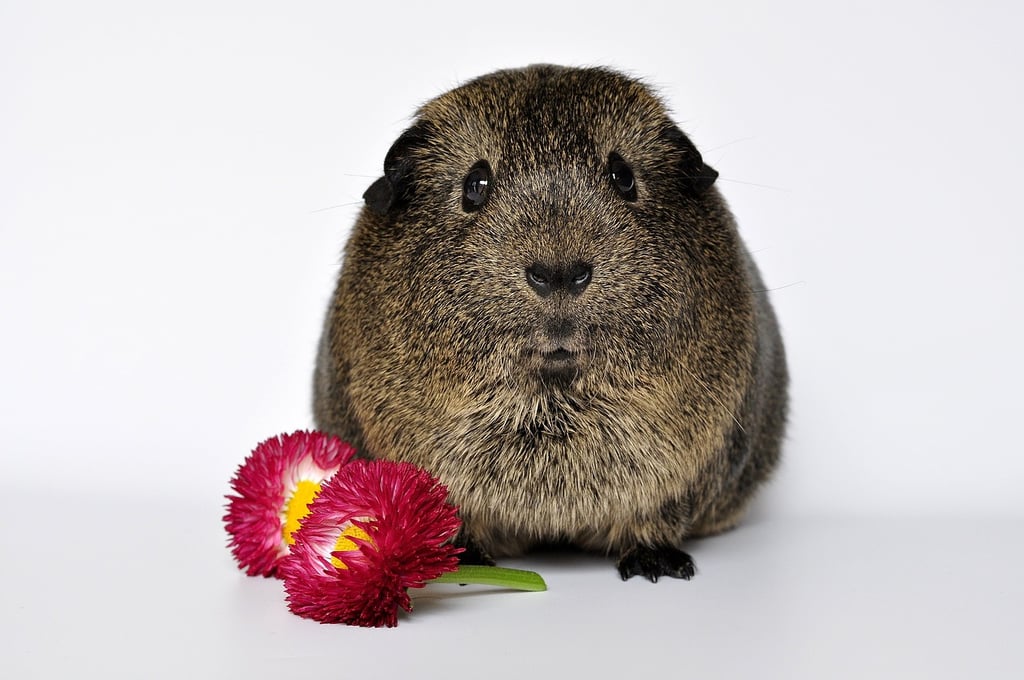
In conclusion, blackberries can be a delicious and nutritious addition to your guinea pig's diet when offered in moderation. They are packed with essential vitamins and antioxidants that can benefit your furry friend's overall health. However, it is crucial to watch out for potential risks and introduce blackberries gradually. Remember, every guinea pig is unique, so it is essential to monitor their health and consult a veterinarian if you notice any adverse reactions. With the right approach, blackberries can be a tasty and healthy treat that your guinea pig will enjoy!
Faqs
-
Is it safe to feed blackberries to guinea pigs?
Yes, it is generally safe to feed blackberries to guinea pigs. Blackberries are rich in vitamin C, fiber, and antioxidants, which can provide various health benefits for your furry friend. However, it is important to introduce blackberries gradually and in moderation to avoid any digestive issues.
-
Can guinea pigs eat blackberry leaves and stems?
While guinea pigs can consume blackberry leaves and stems in small amounts, it is recommended to primarily feed them the ripe blackberries. The leaves and stems can be slightly tougher and may not be as appealing to their taste buds. Ensure that the leaves and stems are thoroughly washed and free of any chemicals or pesticides before offering them as a treat.
-
What are some signs of a blackberry allergy in guinea pigs?
Though rare, some guinea pigs may develop an allergy to blackberries. Signs of an allergic reaction may include diarrhea, bloating, gas, skin rashes, or difficulty breathing. If you notice any of these symptoms after feeding blackberries to your guinea pig, it is recommended to discontinue their consumption and consult a veterinarian for further guidance.

